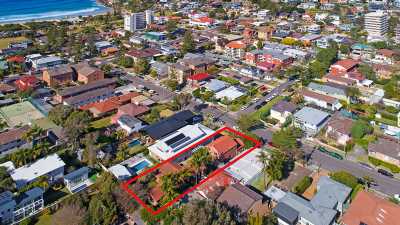
In Australian first, loan interest rate linked to company’s Indigenous reconciliation goals
The NSW land titles registry will pay lower interest rates on some of its debt if it implements a plan aimed at supporting reconciliation with Indigenous Australians following a landmark banking deal that highlights the expanding role of sustainable finance.
Under a new $300 million loan issued last week, the privately owned NSW Land Registry Services will have new financial incentives to develop and implement a Reconciliation Action Plan.
The plan involves setting targets in areas such as Aboriginal and Torres-Strait Islander (ATSI) employment in the business, or procurement from ATSI-owned businesses.
NSW Land Registry Services secured the $300 million sustainability linked loan this week.Credit:AFR
The loan was made by a syndicate of banks including Westpac and the Commonwealth Bank, and it comes as lenders are jostling for a piece of the fast-growing sustainable finance market.
The $300 million loan is the latest example of the expanding scope of products called sustainability-linked loans, which offer borrowers cheaper funding for hitting non-financial targets, or penalties if they fall short.
It is the first sustainability-linked loan in Australia tied to reconciliation, a key priority for the registry.
The loan, part of a wider $1.9 billion refinancing deal with a banking syndicate, will also be tied to metrics on greenhouse gas emissions and gender diversity.
“Given the link between a land registry and Country we are proud to pioneer the inclusion of a Reconciliation Action Plan as one of the key sustainability metrics,” said the chief executive of the registry, Adam Bennett.
NSW Land Registry Services was privatised for $2.6 billion in 2017 and is owned by a group of institutional investors including Aware Super, The Infrastructure Fund, and NatWest Group Pension Fund.
Westpac’s head of sustainable finance, Eliza Mathews, said the growth in sustainable finance was accelerating, citing a surge in global issuance of products such as sustainability-linked loans, green bonds and social bonds.
“We’ve seen issuance for the first half of this year of around $US800 billion, so that’s higher than all of 2020 combined,” she said. “So we’re set for an enormous year.”
There has been $US11 billion in sustainable finance issuance in Australia and New Zealand so far in 2021, slightly less than all of last year.
Ms Mathews said sustainability-linked loans allowed businesses to show their commitment to customers and shareholders. “Really this just shows how broad the opportunities are, how we can look at different areas and incentivise improvement for customers who want to focus on a specific material sustainability issue,” Ms Mathews said.
One influence on the loan’s interest rate will be how quickly the registry moves through the stages of implementing a reconciliation action plan. Targets in the plan include developing a strategy for procurement from Aboriginal and Torres Strait Islander-owned businesses, and increasing the percentage of Aboriginal and Torres-Strait Islander employees.
Reconciliation Australia’s chief executive Karen Mundine said: “We look forward to welcoming NSW Land Registry Services to the [reconciliation action plan] community and encourage them to take brave steps on their reconciliation journey.”
The growth in sustainability-linked loans comes as investors are putting a growing emphasis on environmental, social and governance issues, with banks keen to participate in the growth.
Commonwealth Bank’s group executive for institutional banking and markets, Andrew Hinchliff, said sustainable finance was a key priority for the lender.
“NSW Land Registry Services are to be commended for their commitment to Indigenous Reconciliation, employee diversity and emissions reduction, and we’re very proud to be able to play a part in helping them pursue these ambitions,” he said.
The Business Briefing newsletter delivers major stories, exclusive coverage and expert opinion. Sign up to get it every weekday morning.
Most Viewed in Business
From our partners
Source: Read Full Article
